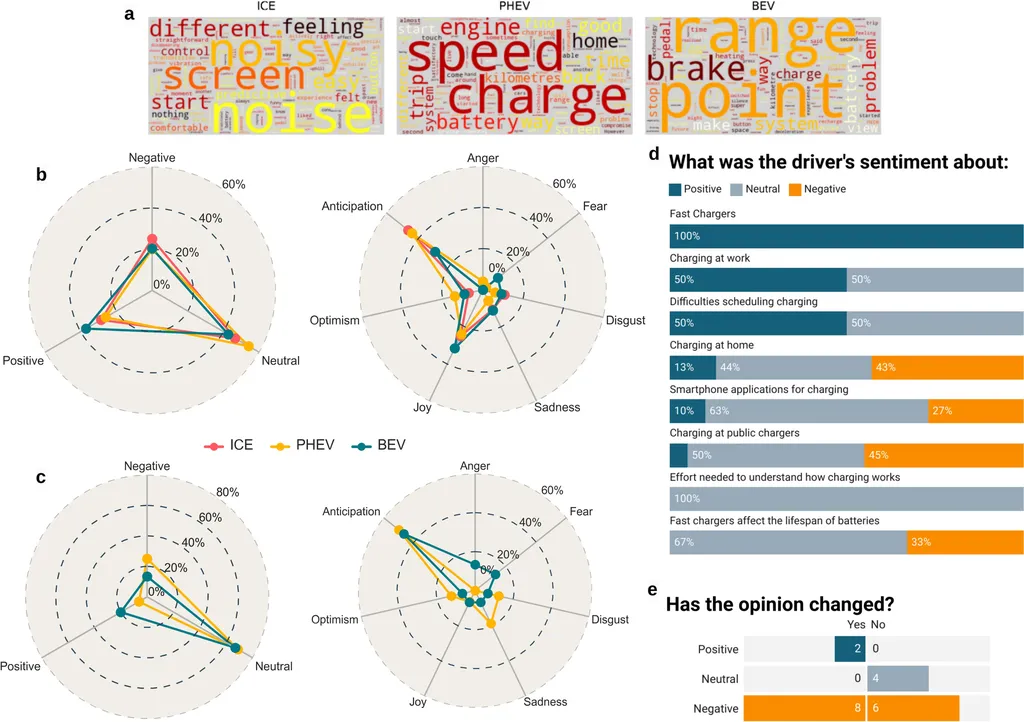In a world grappling with climate change, the transition to electric vehicles (EVs) is seen as a beacon of hope. Yet, the success of this transition hinges on one crucial factor: consumer acceptance. A recent study published in the journal *Nature Scientific Reports* sheds light on the differing perceptions between the general public and experts in the European Union, offering valuable insights for policymakers and the energy sector.
The research, led by Andromachi Mourtzouchou from the Departamento de Transportes y Tecnología de Proyectos y Procesos at the Universidad de Cantabria, adopts a unique two-fold approach. It begins with an empirical driving study, followed by focus group discussions with transportation experts and an analysis of Twitter data collected over five years, from June 2019 to June 2024.
The findings reveal a fascinating dichotomy. Both the public and experts maintain a neutral stance on EVs, with neutrality appearing in 50% of their responses. However, their preferences diverge significantly. Experts, positively influenced by their driving experiences, tend to favor battery electric vehicles (BEVs), with 40% of their comments indicating favorable sentiments. “Experts’ driving experiences seem to play a crucial role in shaping their positive perception of BEVs,” Mourtzouchou notes.
On the other hand, the general public leans towards plug-in hybrid electric vehicles (PHEVs), with 35% of tweets indicating a positive attitude. The public views PHEVs as a more established technology, offering a sense of familiarity and comfort.
The study also highlights differing perspectives on vehicle charging infrastructure. Specialists regard it as a hindrance to widespread adoption, with 30% expressing negative views. Conversely, the general population appears less concerned, focusing more on the feelings and experience of driving.
These findings have significant implications for the energy sector. The divergence in perceptions suggests that different strategies may be needed to promote EV adoption among the public and experts. For instance, showcasing the driving experience and benefits of BEVs could help sway public opinion, while addressing infrastructure concerns could boost expert confidence.
Moreover, the study underscores the importance of accurate information in shaping public perception. As Mourtzouchou points out, “Public perception can be biased by multiple factors such as fake news, prejudices, and misgivings.” Therefore, efforts to combat misinformation and provide reliable information about EVs are crucial.
This research could shape future developments in the field by guiding policymakers and industry stakeholders in designing supportive policies and strategies. It emphasizes the need for targeted approaches that consider the unique perspectives and concerns of both the public and experts. As the world continues to grapple with climate change, understanding and addressing these differences could be key to accelerating the transition to electric vehicles and achieving a sustainable future.

